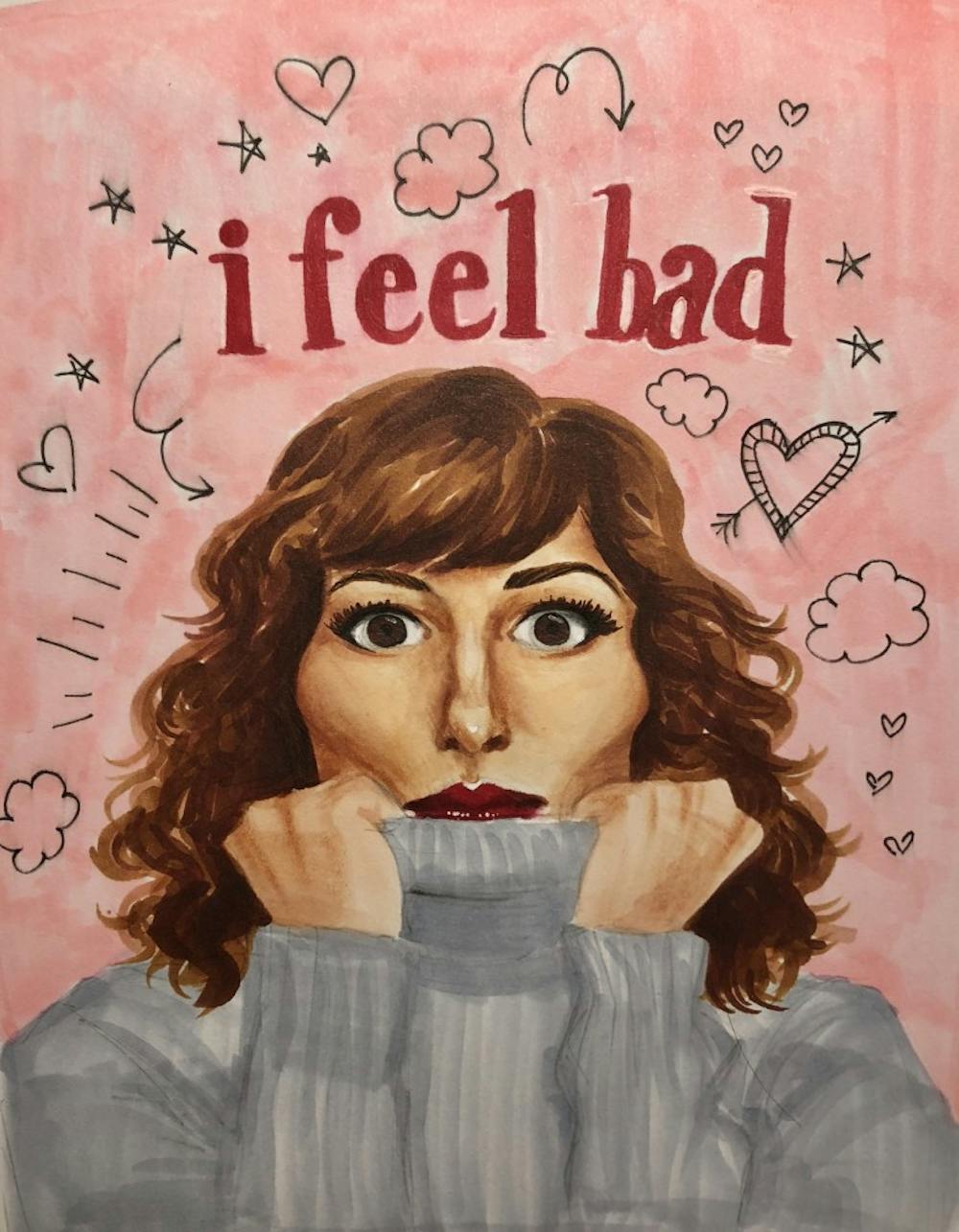I Feel Bad, on paper, looks like it should be a bad show. Perhaps I’m a pessimist, but when I see the phrase “hard–working mom juggling her work with her home life” or “modern feminist take,” I recoil with distrust. There are implications that have been ingrained in me at a young age: I imagine white women with their blonde hair pulled into a messy bun, ordering their children around without any semblance of positive parenting techniques. This woman’s power is in her meanness, which is a narrative not just pushed onto mothers, but white women in general. She is not nice, organized, or caring. She is a Powerful Woman who has Control of Her Life, or, perhaps, she does not have Control of Her Life, but she has no control in a Sexy–Depressed Way.
I Feel Bad is none of that. It is hard to explain the premise of the show without making it seem like many other miserable sitcoms out there: Emet (Sarayu Blue) is, in fact, a hard–working mom juggling her work with her home life, and the show, indeed, is a “modern feminist take.” The differences are in the details: she works as a video game designer surrounded by men (instead of the vague executive job these Powerful Women are always given) and does not parent her children by means of bullying them. She is Indian–American, and neither she nor her parents are some outdated stereotype. She cares about many, many things deeply, but struggles to balance her priorities.
My favorite thing about Emet is that she isn’t mean. The title suggests the guilt that so many women feel in their day–to–day lives, as wives, as mothers, as daughters. She loves her husband and has to balance that with caring for herself; she adores her children and has to figure out when she needs to be harsher. The tricky balancing act is the focus of the second episode (“I Get Sick of Being Needed”), and the truisms within it shocked me upon first watching. Here is a working woman who is struggling to keep her life in balance, but that is not the butt of the joke: it is the premise for which the details of Emet’s character, as well as the constant struggle of women, are shown without being heavy–handed as a social commentary.
In fact, none of the show feels heavy–handed. Many recent comedies focusing on the lives of working women often come off this way (see: The Bold Type) but I cannot roll my eyes at I Feel Bad because it is so utterly realistic. Emet does not react to the casual sexism of the workplace with loud indignation or with quiet acceptance, but rather, she makes a comment and moves on. She reacts to things the way many women do.
This is not to say that feminism is entirely ignored. It seems to be a given that Emet is a feminist, to which other men (particularly those in her workplace) try to shoehorn themselves into. “It was pretty anti–feminist to refuse Lily to the dignity of her choice of dance. Talk about keeping women locked in a hegemonic power structure,” says Norman (one of three colleagues who is shown as catalysts for Emet’s unfortunate plans). It is funny because it is a man lecturing a woman, somewhat casually, on feminism. Emet shrugs him off, saying that she’d love to discuss the matter at another time, but she’s a little tied up in something right now.
What makes Emet most different from various sitcom mothers is that she is multidimensional, rather than seen only as a mother. She exists outside of her husband and outside of being a mother. In her workplace, she is still both of those things, but she is not defined by them.
It is clearly a reflection on how women (particularly women of color) engage with the world of white men, shown in Emet’s interactions with her colleagues, and also how women engage with themselves. But this is not the whole point. I call it a reflection for a reason. The point is that we are seeing the story of a woman, a wire stretched thin, who indulges in herself sometimes and feels guilty for it, but the message is always that she shouldn’t. I Feel Bad tells us that we shouldn’t feel bad for being ourselves and for putting ourselves before others: we should simply accept it and carry on.

